KOLOT – Voices of Hope, Post-October 7 Series
Lissan ליסאן لسان:
Breaking Barriers, Advancing Equality – Word by Word
By Aliza Schoffman Land
Twelve years ago, 18 Palestinian women from the East Jerusalem neighborhood of Issawiya approached two Jewish students at Hebrew University and asked them to teach them Hebrew. Every day, these women found that without Hebrew they struggled with some of the most basic tasks of daily life: going to the doctor, picking up a prescription, speaking with a service provider.
For Palestinians living in East Jerusalem, such challenges aren’t unusual. 75% of Palestinian women report weak to no Hebrew proficiency. Over 70% are unemployed, and language is one of the primary barriers. Without Hebrew, navigating life in the city – where most public, health, and legal services operate in Hebrew – can be daunting, if not impossible.
Soon, the two Jewish students were walking down to the Issawiya community center every week to give lessons. It started small – one class, one day a week. But after the first year, the 18 women wanted to keep going, and they brought their friends and family. The volunteers brought more volunteers. Very quickly, the community center became too small, and classes moved to Hebrew University’s Mount Scopus campus.
That’s how Lissan began.
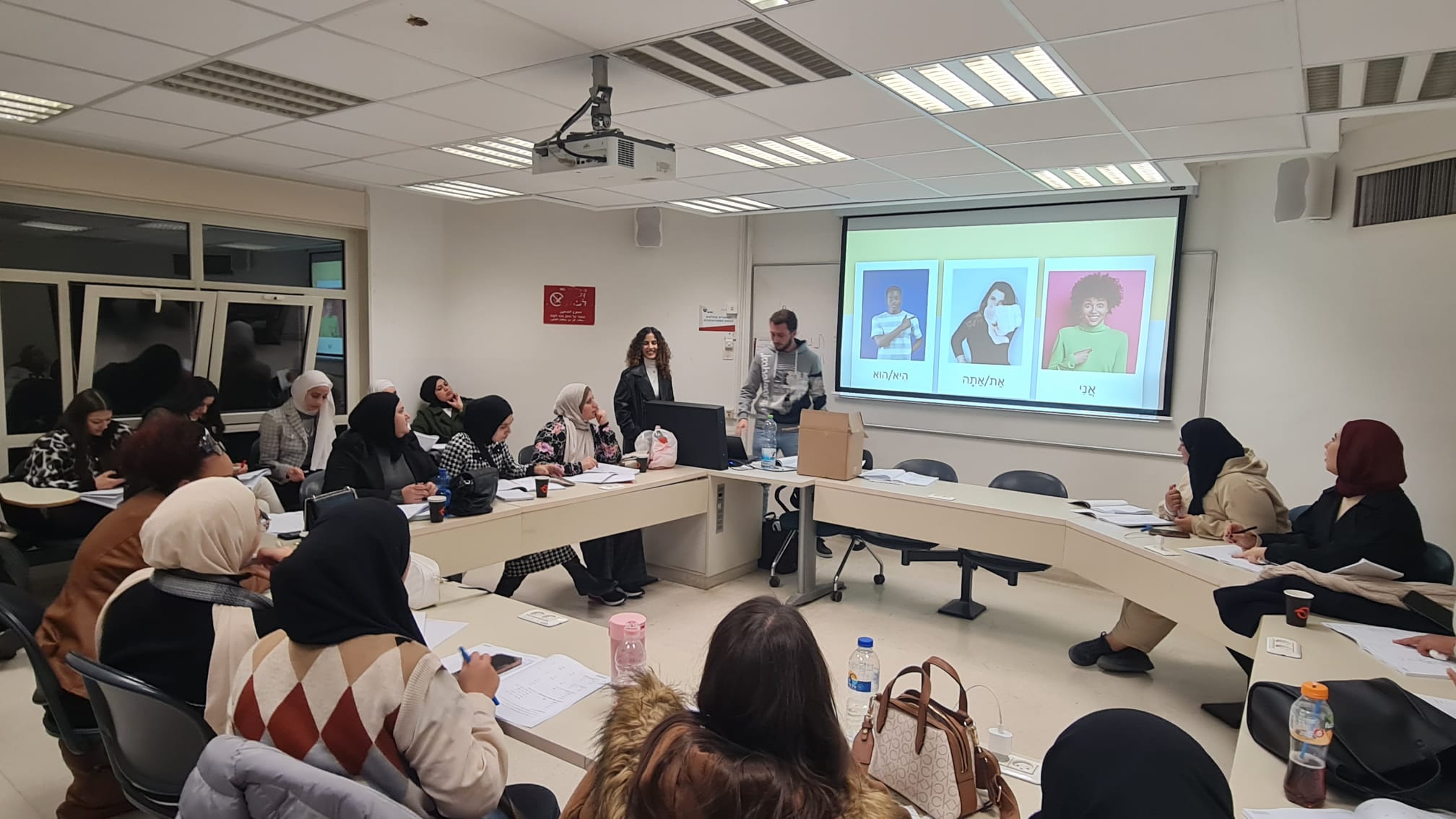
A class led by Lissan’s Taleen and Lavie
Fast forward to today: Lissan teaches everyday Hebrew to more than 450 Palestinian women a year through our flagship project, Medabrot Ivrit – Women Speaking Hebrew, and approx. 600 students across all of our projects. Classes are taught by over 50 Israeli and Palestinian volunteer teachers and supported by 10 student coordinators. Our growing staff of Palestinian and Israeli women is developing new projects for our alumni network, which now includes more than 3,500 women.
Our model is community-based by design – relying on volunteer teachers who work in pairs – one Palestinian, one Israeli – to model partnership and solidarity in the classroom. Courses focus on practical, real-life skills: navigating healthcare, dealing with bureaucracy, using public transportation, and handling workplace conversations. And our approach works. Our impact survey from August 2024 showed that:
- 95% of students said their confidence in using Hebrew grew.
- 92% reported being able to use Hebrew in situations that had previously been difficult or impossible.
- 40% reported that their Hebrew skills helped them find or improve employment.
- One in five graduates started a new job or business after their studies.
But our vision doesn’t stop there. At Lissan, we believe that true equality in Jerusalem requires more than teaching Palestinians Hebrew. It also means addressing the imbalance: in a city where almost everyone speaks Hebrew but very few Jewish Israelis speak Arabic, the burden of bilingualism has always fallen on Palestinians.
That’s why, alongside Medabrot Ivrit – Women Speaking Hebrew, we also create spaces for Jewish Israelis to learn Arabic. Through our Arabic for the Community courses, our new tandem language exchange, and joint events like our annual Community Iftar, we invite Israelis and Palestinians to sit together, learn each other’s languages, and begin to imagine what a truly bilingual Jerusalem could look like.
For us, language is not just about communication—it’s about justice. When both Hebrew and Arabic are spoken, power is shared more equally. Fear is reduced. Trust grows.
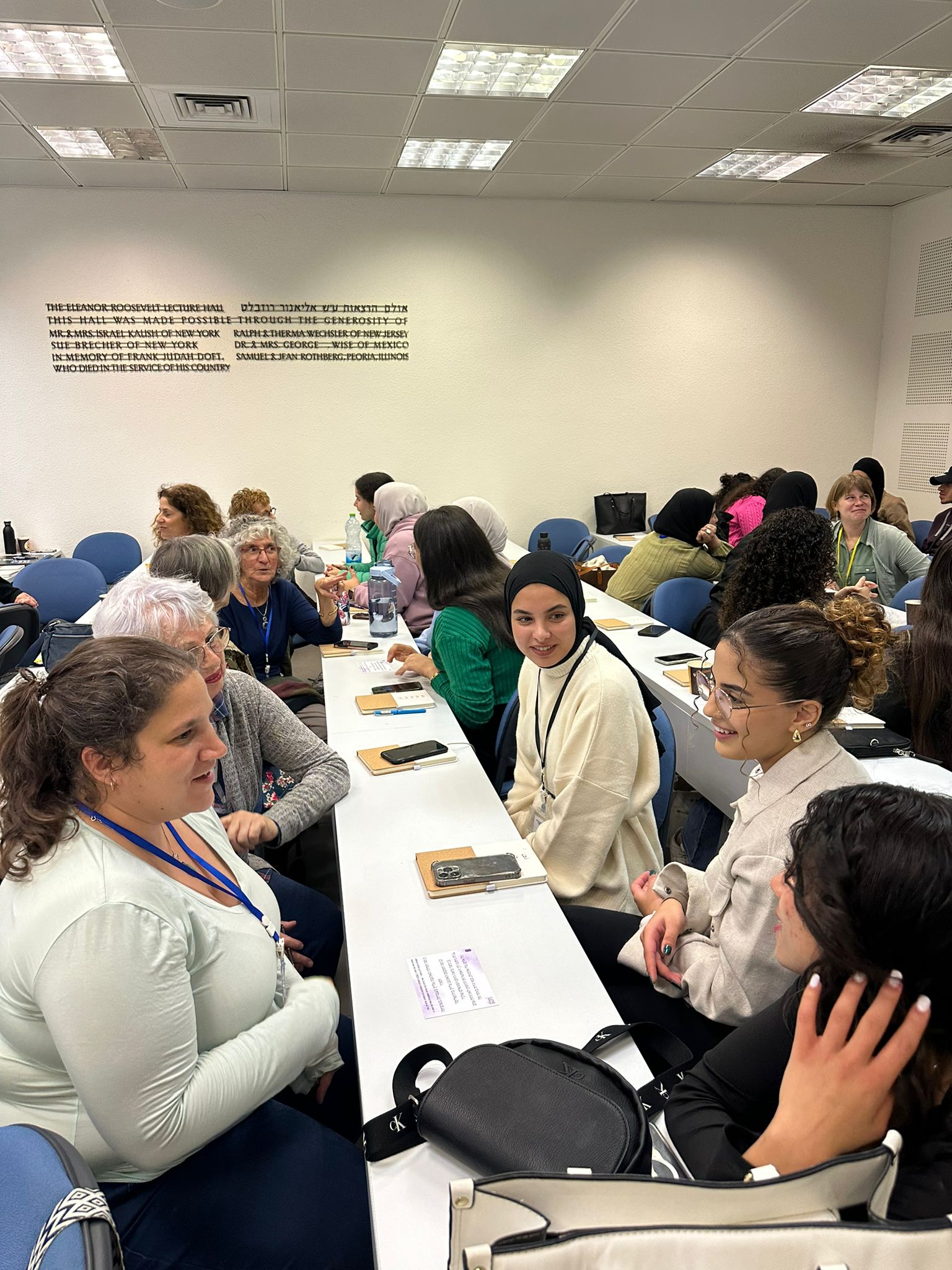
Lissan teacher training session
These numbers and projects tell part of the story. The other part lives in the classroom—in the moments where women begin to speak up, to joke, to share their own stories in a language they once feared.
I’ve worked at Lissan for three years, mostly behind the scenes as Director of Partnerships and Strategic Development. I spend my days writing grants, building partnerships, telling Lissan’s story to donors. But this year, I stepped out from behind my desk and into the classroom.
It was a hard year – one of the hardest our region has faced – against the backdrop of war, tension, and fear. My husband was in and out of IDF reserve duty. And still, every week, I found myself in the mixed neighborhood of Abu Tor, teaching a group of 10 traditional Muslim Palestinian women.
Our goal in these courses is to give women the Hebrew they need to access rights, resources, and opportunities. But in that classroom, we also built a safe space to connect, to listen, to share pieces of ourselves.
Our lessons were very practical – navigating public transportation, shops, and health clinics. But it didn’t take long to see that what my students most wanted was simply to talk.
That’s how I met Enas.
She came up to me after one of the first lessons. This was her very first time learning Hebrew in a classroom. My class was for more advanced students. She had somehow taught herself enough vocabulary to get placed into my class, but she had never learned grammar, and her confidence was low. I told her: the fact that you made it here means you can do this.
She took that to heart. All year, she worked hard and made enormous progress. At our graduation ceremony, she stood in front of the 800 people who had gathered to celebrate together and shared her story – all in Hebrew. Here it is, in her own words:
“Hello everyone, my name is Enas Sub Labban. I’m a mother of four – three daughters and one son. My story began during COVID. One day, I went to buy cosmetics. I entered a store, but the shopkeeper was Jewish. I didn’t know how to explain in Hebrew what I needed. I stood there, trying…becoming confused…and finally went home without being able to buy anything.
Sometimes my children would ask me to take them on trips, but I was afraid to go to certain places because I couldn’t speak or understand the instructions at the park. That’s when I realized how dependent I was on the language. I thought: That’s enough. I must learn Hebrew.”
“I heard about Lissan, which supports Palestinian women, and I signed up. My first lesson was hard – I didn’t understand the teacher. At the end, I told my teacher, Aliza, that I had never learned Hebrew before. She told me, ‘You can. I see you have a love for learning. Keep going.’ That made me happy.
I learned slowly, remembering her words. Now, at the end of this course, I can understand and speak Hebrew. I can take my children anywhere. I can shop and tell the shopkeeper exactly what I need. I’m no longer afraid to leave the house. Now, I feel I have great self-confidence.”
Hearing Enas speak in front of this packed auditorium was one of the proudest moments I’ve had at Lissan. It reminded me that what we do is about more than teaching a language.
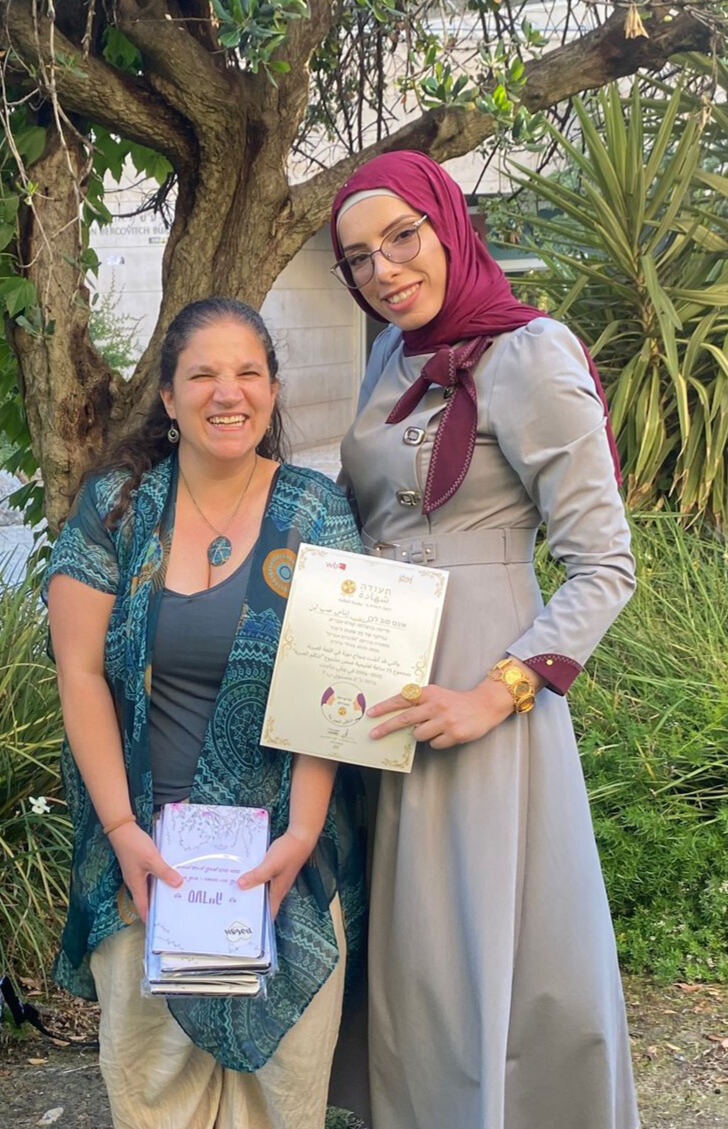
Enas, with diploma, and Aliza
When a woman learns Hebrew, she gains so much more than vocabulary and grammar. She can speak directly to a doctor instead of relying on a family member to translate. She can read a contract before she signs it. She can apply for a job, run her own business, or simply feel safe navigating the city where she lives.
And when she does, her whole family benefits. Children see their mother navigate spaces she once avoided. Husbands and parents rely on her for things they couldn’t before. Her confidence and courage spiral out to friends, neighbors, her entire community.
This is the ripple effect we see every day at Lissan – one woman’s new confidence sparking change for dozens of people around her.
Our dream is that one day, whether at a doctor’s office, a bus stop, or a playground, every Jerusalemite will be able to understand and be understood – in Hebrew and in Arabic. Word by word, story by story, we are building that future together.
To learn more about Lissan, we invite you to visit our English-language website, and to follow us on Facebook, Instagram, and YouTube, as well as on LinkedIn.
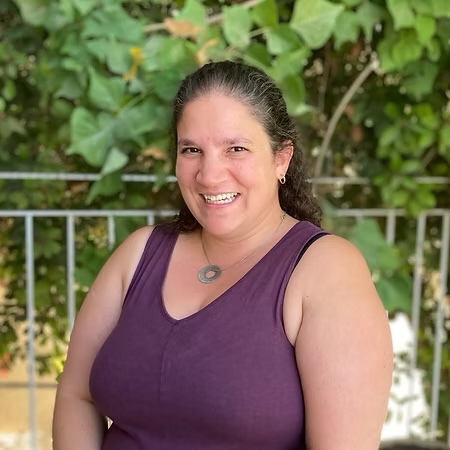
Aliza Schoffman Land is the Director of Partnerships and Strategic Development at Lissan.

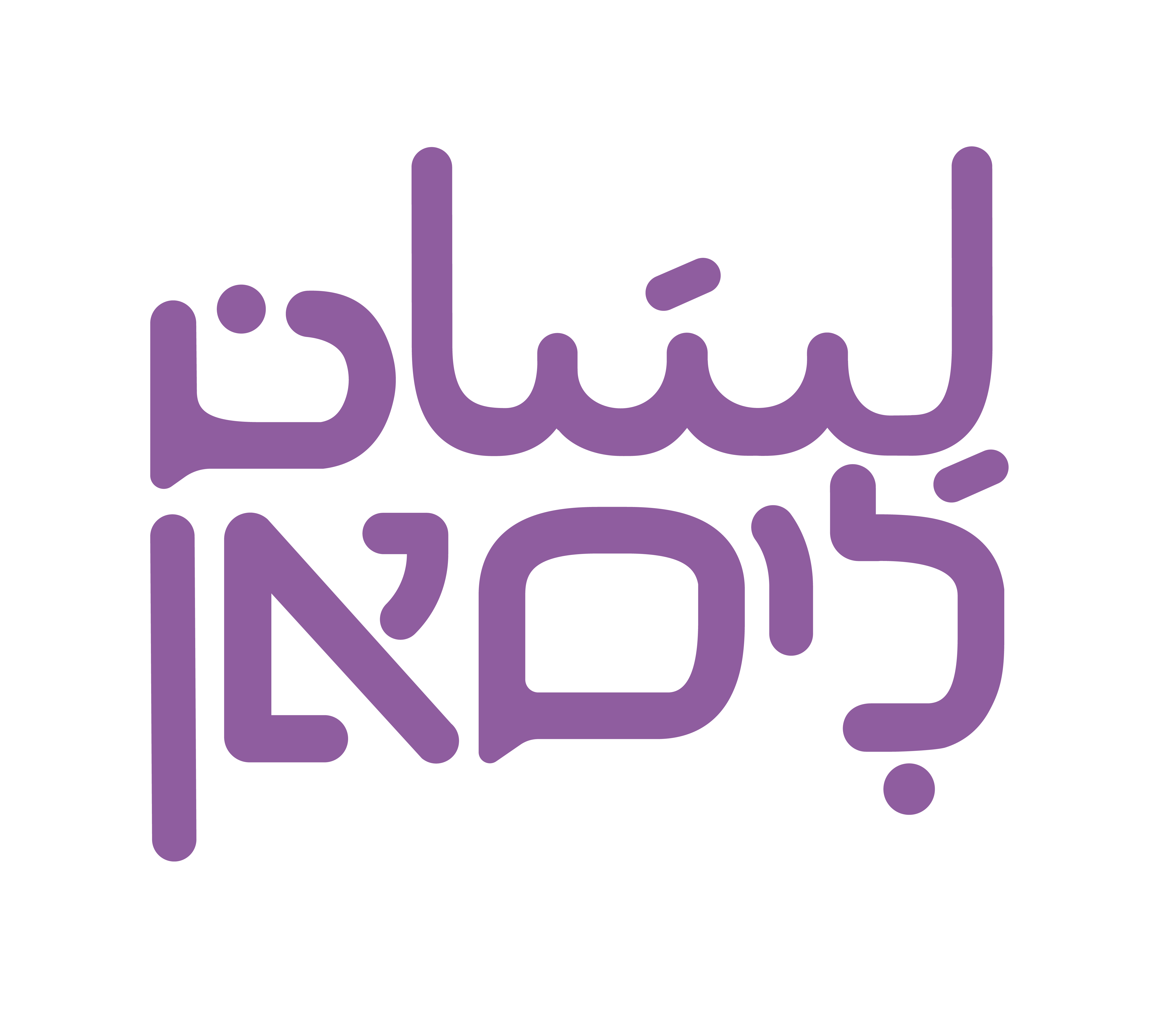

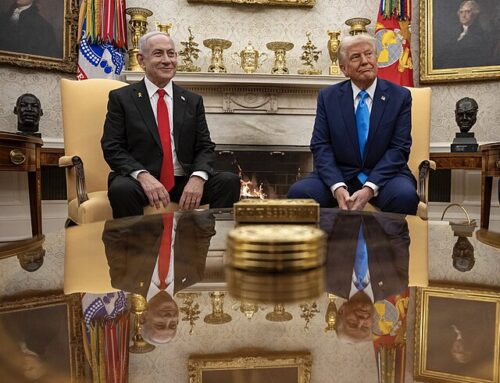
Leave A Comment